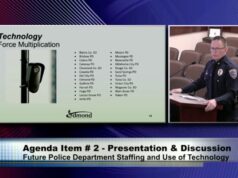
When just over a week remained in Oklahoma’s latest legislative session, media outlets throughout the state questioned whether leadership would reach a budget agreement and get it passed from both chambers within the constitutionally mandated five days prior to the end of session.
Leadership did not.
Instead, a budget agreement came together less than 72 hours before the sine die deadline of 5 p.m. on the last Friday in May. Legislative leadership gave little explanation as to why they were able to break the revenue-deadline rule with any level of confidence, offering only assurances that they felt their bills would pass constitutional muster.
The Oklahoma Supreme Court has shot down one of the bills passed during that last week — a tobacco-tax increase. The court then affirmed a separate legal challenge by the Oklahoma Auto Dealers Association’s, due to the measure in question being considered a removal of a sales tax exemption rather than a revenue-raising bill. Separate challenges from former GOP gubernatorial candidate Gary Richardson and from the Sierra Club regarding an electric- and hybrid-vehicle fee remain pending.

State Sen. Kay Floyd (D-OKC), the author of an interim study of laws that pass but then get thrown out as unconstitutional, said legal challenges have been an issue regardless of which party has been in charge at 23rd and Lincoln. The frequency of such legal challenges, however, was something she believed needed review.
“I just think we need to take a look at it and see if it is costing the state more money,” Floyd said.
Laws face challenges from ACLU, others

According to the ACLU of Oklahoma’s director of external affairs, Allie Shinn, the question is not whether dubious legislation creates negative consequence. Instead, Shinn said, the monetary and non-monetary effects form the crux of the issue.
“Our concern is definitely that there is a very real human impact,” said Shinn. “What (the Legislature is) doing is working against the interest and the values and the humanity of Oklahomans.”
Shinn cited the Ten Commandments monument on state property as an example of the state failing to respect religious freedoms. When asked about the legislation in 2009, Rep. Mike Ritze (R-Broken Arrow) compared it to a similar monument in Texas, which had already withstood constitutional challenges. The Oklahoma Supreme Court, however, rejected the monument on Oklahoma’s State Capitol grounds based on separation of church and state provisions within Oklahoma’s Constitution.
In addition to the Ten Commandments issue, the ACLU of Oklahoma actively involves itself in some of the legal challenges of Oklahoma’s unconstitutional laws, including anti-abortion legislation.
Retired attorney Jerry Fent has also taken a particular interest in challenging legislation that he believes is unconstitutional. Fent began with contesting laws that were created by bills having multiple subjects, also known as logrolling, which is prohibited. Such challenges help shine a light on what might otherwise be swept under the rug.
“Now, everybody knows about logrolling,” Fent said.
Monetary costs debatable
The Oklahoma Attorney General’s office is tasked with representing the state when lawsuits challenge new laws as unconstitutional. Spokeswoman Terri Watkins said in reviewing the last few years, she found no additional costs associated with defending these types of lawsuits.
“The attorney general’s lawyers representing the Legislature are staff attorneys,” Watkins said. “Outside counsel are not hired. Therefore, the additional cost to the state is zero.”
Shinn disagreed with Watkins’ assessment, as she said people on the attorney general’s staff diverted their time from more productive matters. She said claims that no actual dollar cost exists for passing unconstitutional legislation are inaccurate.
“I don’t think that’s a fair thing to say,” said Shinn, citing time spent on attorney hours and extensive research. “There’s a real monetary cost associated with that.”
Floyd said the monetary costs are one thing, but constitutional challenges also make Oklahoma stand out for the wrong reasons. On the heels of North Carolina being nationally shamed for its bathroom bill, Oklahoma received negative attention for its own bathroom bill that was tied to abortions. Floyd said private industries in Oklahoma were taking a real monetary hit due to this law, and national media painted the state as a whole in a negative light.
“It’s not just the attorneys’ fees that are a drain on the state,” Floyd said, “it’s also the national view of Oklahoma as running these types of bills and supporting these types of laws.”
To Shinn, Oklahoma is defining itself a certain way to the exclusion of those who embrace other ideas.
“The message that we’re sending is that others are not welcome,” Shinn said.
Senate Appropriations Chair Kim David (R-Porter) has scheduled an Oct. 4 hearing to review the interim study of legally challenged legislation.





















